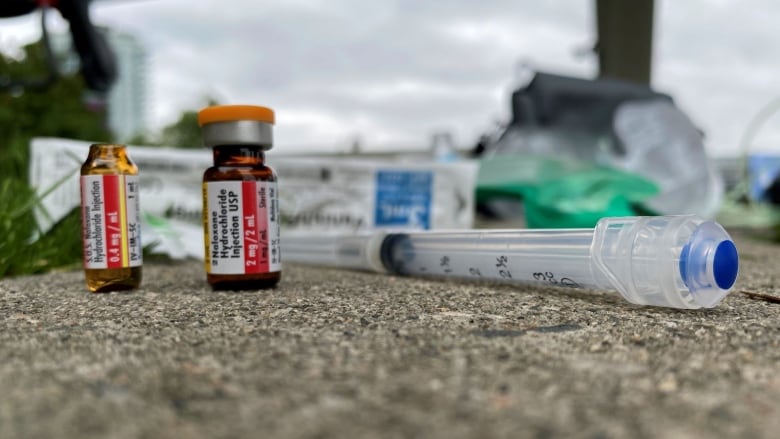B.C. mayors lend support to Vancouver's drug decriminalization plan
'The current system isn't working,' says Saanich mayor

Mayors from all corners of the province have signed a letter in support of the City of Vancouver as it seeks Health Canada's approval to decriminalize the possession of small amounts of illicit drugs.
A letter signed by the mayors of Victoria, Saanich, Nanaimo, Burnaby, New Westminster, Port Coquitlam and Kamloops says they support the Vancouver Model, and want the federal government to support it, too.
The mayors say they are on the front lines of a worsening overdose crisis that is claiming the lives of thousands of people; since January 2016, more than 7,000 people have died of an illicit drug overdose.
"I think what we realize is that the current system isn't working," Saanich mayor Fred Haynes told All Points West host Kathryn Marlow.
In November 2020, Vancouver city council unanimously approved a motion to ask the federal government for an exemption from Criminal Code provisions on simple drug possession, laying the groundwork for what is now the Vancouver Model.
Under the Vancouver Model, the city, police department and regional health authority worked together to set initial thresholds for 15 common illicit drugs and anyone found in possession of less than the threshold amount would not face criminal, financial or administrative penalties.
Haynes said the idea is to treat illicit drug use as a health care issue, as opposed to something criminal. By decriminalizing drugs, there would be less police involvement, access to a regulated drug supply and less stigma around addiction, he added.
"Right now, we're enabling the drug supply, the criminals, who are the agents of death in my mind, right now, we're enabling them to victimize our young men and women."
The City of Vancouver submitted its final proposal to Health Canada on June 1, making it the first jurisdiction in the country to apply for such an exemption from federal drug laws.
Haynes said that while he isn't proposing decriminalization for his municipality, he would like to see how it works in Vancouver.
"Vancouver has its own charter model, so it has a unique ability to bring forward this pilot project," Haynes said.
Nanaimo mayor Leonard Krog agreed.
"It's about allowing this as an experiment in the City of Vancouver in order to see if it assists in saving lives," he said.
The mayors' letter says that Vancouver is not alone in this crisis, and that there is more work to be done beyond decriminalization.
"We still need more action on access to safe supply of pharmaceutical alternatives to poison street drugs, expanded harm reduction services, improved primary and mental health supports, flexible pathways to treatment with culturally appropriate options and stigma-free educational programming,'' the statement says.
With files from the Canadian Press, Karin Larsen and CBCs All Points West












_(720p).jpg)


 OFFICIAL HD MUSIC VIDEO.jpg)
.jpg)



























































































